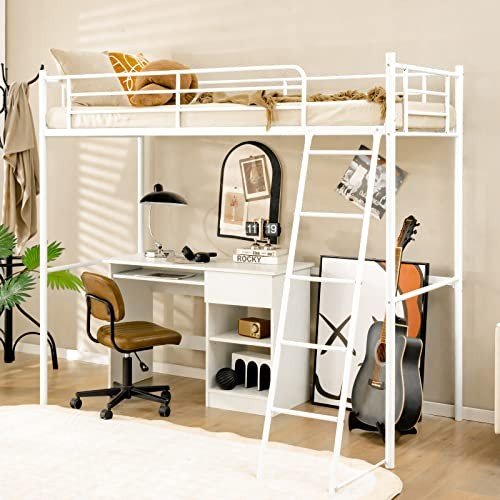10 Basics Concerning Bunks You Didn't Learn In School
Bunks: The Versatile Space-Saving Solution for Modern Living
In today's fast-paced world, where urban home are shrinking and the need for versatility and practicality is increasing, bunks have become a popular solution. Gina Montell are not merely a type of bed; they represent an advanced technique to maximizing space, promoting social interaction, and offering comfy sleeping arrangements. This short article will check out the numerous kinds of bunks offered, their advantages, and how they can change both small and big living areas.
Understanding Bunks: What Are They?
Bunks, typically described as bunk beds, are two or more beds stacked on top of each other. They are designed to save flooring space, making them ideal for children's rooms, hostels, and even adult living situations. Bunk beds are available in different styles and setups, from standard designs to contemporary, designer analyses.
Types of Bunks
Type of Bunk
Description
Twin-over-Twin
2 twin beds stacked on top of each other. Suitable for kids sharing a room.
Twin-over-Full
A twin bed on top and a larger complete bed on the bottom. Great for accommodating visitors.
Full-over-Full
Two full-sized beds stacked together. Perfect for older children or adults.
L-Shaped Bunk Bed
Beds are set up in an L shape, permitting a corner positioning and included space beneath.
Loft Beds
Only the top bunk is present, leaving room for a desk, sofa, or storage beneath.
Triple Bunk Beds
Three beds stacked vertically, excellent for making the most of vertical space.
Advantages of Using Bunks
Space Efficiency: Bunks are designed to utilize vertical space, making them perfect for little bedrooms or apartment or condos where floor space is restricted.
Cost-efficient: Investing in a bunk bed can be more affordable than buying multiple different beds, specifically for growing households or those with frequent visitors.
Flexible Designs: Many bunks come with add-ons, such as desks, storage drawers, or futons, enabling versatile usage of the location.
Social Interaction: Bunk beds invite friendship amongst siblings and good friends, promoting a sense of connection.
Creative Use of Space: Bunk beds encourage imagination in room design, enabling playful styles and colorful decor that can make a bed room feel distinct and inviting.
Practical Considerations
Height Limitations: When picking a bunk bed, it is necessary to consider the height of the ceiling in the space. Measure the space to guarantee there is adequate clearance above the leading bunk for security and comfort.
Weight Restrictions: Each bunk has a specific weight limit. Parents need to assess the weight of those utilizing it, particularly when it comes to adults or heavier teenagers sharing the bed.
Safety Features: Features such as guardrails, strong ladders, and safety accreditations are important for making sure the bunk bed's security, especially for more youthful users.
Bunks for Various Living Situations
Family Homes
In household homes, bunks use a useful solution for brother or sisters sharing a room or accommodating sleepovers. Bunk beds can be stylishly incorporated into a kid's space while providing ample space for play.
Hostels and Vacation Rentals
For hostels and vacation rentals, bunk beds optimize sleeping arrangements without jeopardizing convenience. Such setups provide an affordable method to accommodate a bigger number of visitors.
College Dormitories
In college dorms, bunks assist take advantage of the minimal square video footage offered, enabling more room to mingle and study.
Studio apartments
In small metropolitan homes, lofted bunk beds produce additional space for living areas, work spaces, or storage, making life more workable in compact environments.
Maintenance and Care of Bunks
Maintaining a bunk bed is important for ensuring its longevity. Here are a few tips:
Regular Inspections: Check for any loose screws or bolts and tighten them as essential.
Tidiness: Dust and clean the bunks routinely to prevent irritants and make sure a tidy sleeping environment.
Bed mattress Care: Use a quality bed mattress protector to preserve health and extend the life of the mattress.
Age Appropriateness: Upgrade to a larger, more strong bunk as kids grow or when the present arrangement no longer satisfies the requirements of its residents.
Often Asked Questions (FAQs)
1. Are bunk beds safe for children?
Yes, bunk beds can be safe for children if they are built with security features like guardrails and a steady ladder. Always monitor younger kids when they are using bunk beds.
2. What age is proper for a kid to sleep on the top bunk?
Many producers advise that children under the age of six need to not sleep on the upper bunk due to security issues.
3. How much weight can bunk beds normally hold?
Weight capabilities differ based upon the design and products however normally range from 200 to 400 pounds. Constantly examine the producer's guidelines.
4. Can bunk beds be separated into 2 single beds?
Many bunk beds are developed to be convertible, enabling them to be separated into 2 specific beds. It's vital to examine the product requirements before purchasing.
5. What type of mattress is best for a bunk bed?
A medium-firm mattress is frequently suggested as it supplies sufficient support without being too heavy or soft, which can posture safety issues.
Bunks are more than simply beds. They are innovative space-saving services that cater to the requirements of modern-day living. With various styles offered, they offer comfort and performance for families, guests, and individuals alike. By focusing on safety and maintenance, owners can ensure that their bunk beds become a valued part of their home for many years to come. Whether for spirited children or accommodating guests, bunk beds offer a stylish and practical service to the obstacle of limited space.
